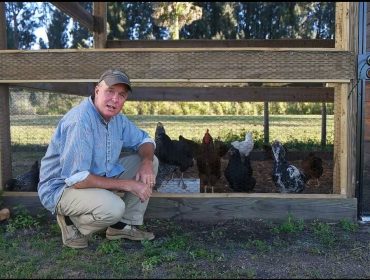
Introduction
Process

The Benefits of Sustainable Agriculture
Sustainable agriculture protects the environment, expands the Earth’s natural resource base, and maintains and improves soil fertility. It also promotes environmental stewardship while enhancing the quality of life for all of God’s redemptive Stewards and their respective communities. Sustainable agriculture also benefits the environment by maintaining soil quality, reducing nutrient depletion and soil erosion, and it saves water. In addition to these benefits, sustainable agriculture also increases biodiversity of a region by providing a variety of microorganisms with healthy and natural life giving environments to live in. The resulting abundance can now be leveraged toward building God’s kingdom within your local community in blessing others.
Our Research About Establishing Food Forests & The Importance of its Connection with Animals
At Eden Homestead, we’ve spent the past four years establishing our grounds through Redemptive Stewardship of our land through the incorporation of practices we learned from the Bible. We have paid close attention to how things grow, and how ecosystems establish themselves as they set up. Combined with direct revelation by God through His creation, we have developed a curriculum based on our own observations and research that shows the relevance of God’s creation with regard to relationships of all living things, as well as revelation of His nature and character.We have also made discoveries as to the importance of how people, plants and animals, as well as insects are all necessary vital components within the function of Gods creative order. We are currently compiling our observations and condensing them into training manuals for those who attend our Redemptive Stewardship training and teaching courses.
Redemptive Stewardship's Relevance Toward Building God's Kingdom
Caring for God′s creation is part of our service to God and an integral part of our role as servant leaders in God′s kingdom. In Romans 8, the Apostle Paul makes this profound statement when he says, “Creation itself will be set free from its slavery to corruption into the freedom of the glory of the children of God” (Romans 8:21). A steward is someone who handles affairs for someone else. In ancient kingdoms, stewards ran the country in the absence of the king. Upon the king’s return, the steward gave a full accounting for his actions. Even when the king was present, the steward often handled the daily affairs of the kingdom. However, a steward did not own the kingdom. And, the king determined when and how long a steward would serve him.This concept of stewardship dates from the beginning of time, when God entrusted the earth to Adam and Eve and their offspring (Gen. 1:26-28). All men are stewards of the earth’s resources.We have received not only the earth, but also many spiritual riches to be used to advance the kingdom of God (cf. Lk. 19:11-27). Our Lord expects that we will use all for His glory and the salvation of souls. God did not expect only one person to be the steward of all creation. Rather, He blessed Adam and Eve and made them fruitful. Filling the earth is the means by which the earth becomes subdued by man. This essential truth is embodied in the right to life. Each person born contributes to the well-being of society. Through prayer, work, and discovery, each person allows others to grow in knowledge and holiness. Thus, no one person rules the earth. Collectively, we are stewards of the earth.




